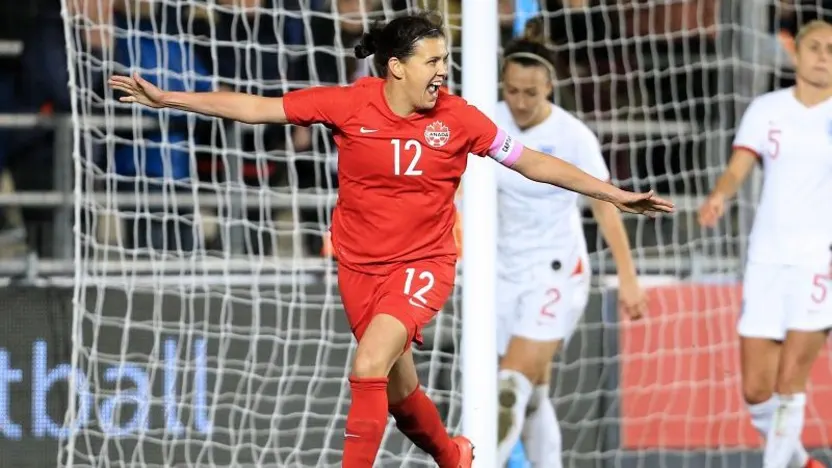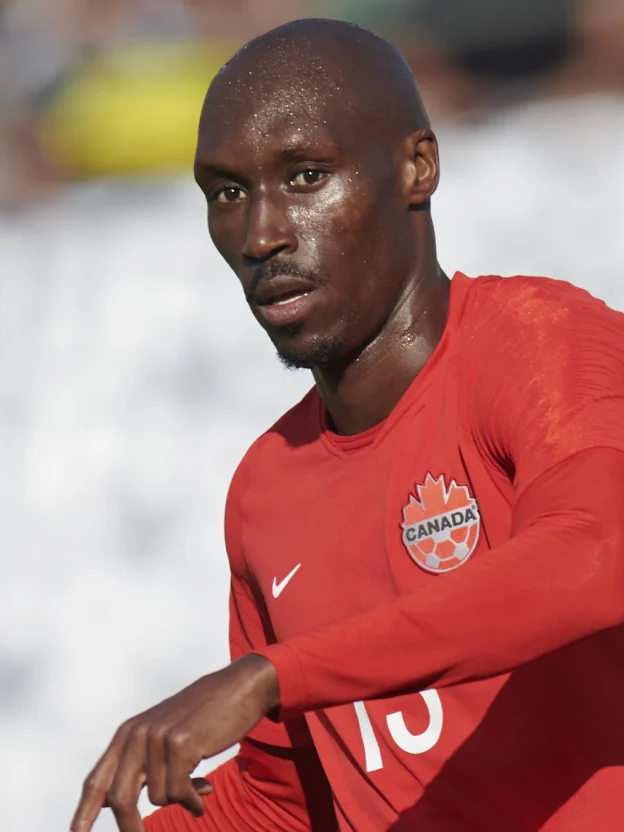It’s strange to think that we’re really watching the 36-year-old Canadian legend competing in this tournament for the very last time. Perhaps I’m speaking of Christine Sinclair, who scored her 182nd national-team goal on Thursday against the Netherlands at the FIFA Women’s World Cup. Or maybe I’m referring to Atiba Hutchinson, who started against Mexico on Wednesday night at the CONCACAF Gold Cup. Truth is, I’m talking about both. Yes, Sinclair will presumably still be part of the women’s team at next year’s Olympics, and the possibility remains that Hutchinson will hang on with the men’s team for a little bit longer (after all, we thought he’d retired back in 2016, yet here he still is). But either way, through a remarkable stroke of coincidence, we’re currently getting to witness our greatest male player and our greatest (perhaps the world’s greatest) female player simultaneously vying, in the twilights of their respective careers, to lift their teams to unprecedented levels of glory and prestige. Sinclair was there, back in 2003, when Canada achieved a best-ever fourth-place finish at the Women’s World Cup; she was the lone goal scorer in the team’s 3-1 loss in the third-place match. The 20-year-old scored a trio of goals in that tournament, though no one yet knew how much of an impact the lanky kid would go on to have. For his part, Hutchinson was just 17 when Canada unexpectedly rolled to victory at the 2000 Gold Cup; he’d debut in the national-team program the following year. But to say that tournament victory flew under the radar would be an understatement—three of the 12 competing teams were non-regional invitees; one of them, Colombia, even made the final. That final, played in the Memorial Coliseum in Los Angeles, drew an official crowd of just 7,000 to watch Canada win 2-0. Seven years later, the tournament’s profile had grown immensely. An audience of over 50,000 packed into Soldier Field in Chicago to see the 2007 semi-final showdown between Canada and the United States. With the Gold Cup hosts up 2-1 in the game’s final seconds, Hutchinson latched onto a long ball and slotted it past American goalkeeper Kasey Keller to tie things up… except… An erroneously raised offside flag negated the goal and (unbeknownst to anyone at the time) sent the Canadian program spiraling into a decade’s worth of Gold Cup oblivion. And, as if one refereeing controversy in a semifinal against the Americans wasn’t enough, there was, of course, the 2012 Olympics. You know the deal. Sinclair hat trick. Six-second rule. Penalty kick. American winner deep into extra time. The less time spent thinking about that, the better. Sure, we’ll never know what might have been in either of those games—and to define either player’s national-team tenure by those moments of heartbreak would be to demean all of their other accomplishments. Sinclair is just two goals shy of matching the all-time record in international soccer, while Hutchinson is among Canada’s most-capped men’s players, and has reached heights in his club career that most Canadians could only dream of.

Both players have used their long limbs and physical poise to great advantage during their careers. Both let their passions come out on the field while remaining generally unassuming off of it. Both have willingly adjusted their roles—Sinclair serving as more of a playmaker, and Hutchinson dropping into central defence—when called upon. And both have found themselves, in a neat symbolic turn this week, lining up alongside the players to whom they could very well be passing their torches. On Wednesday, Hutchinson watched 24-year-old Mark-Anthony Kaye coolly patrol the midfield as he has for so long; on Thursday, Sinclair linked up in attack with the player many see as her goal-scoring successor, 18-year-old Jordyn Huitema. Canada has clinched a spot in the knockout stage at both the Women’s World Cup and Gold Cup, though neither is a tournament favourite. To see either of them win the competition would, realistically, be a notable upset. But the fact that anyone is even entertaining the possibility is a clear sign that we’ve moved far beyond the days when Sinclair or Hutchinson were the sole bright spot during otherwise mediocre national team games (or stretches of games). Whether it’s the likes of Huitema, Janine Beckie and Nichelle Prince in the attack or Kaye, Scott Arfield and Junior Hoilett in the midfield, Canada’s now got plenty of feet available to fill the shoes that will be vacated by Sinclair and Hutchinson. By all means, let’s think about where the Canadian programs could go from here, in 2019 and beyond. But, for at least a few moments this month, let’s all appreciate a pair of generation-defining talents who’ve helped our national teams get here.
